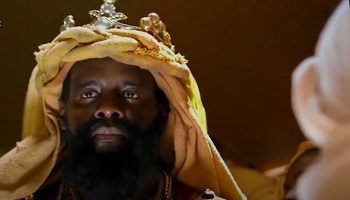
Mansa Musa Net Worth Would Compare in Today’s Economy
When discussing historical wealth, one name consistently stands out: Mansa Musa, the 14th-century ruler of the Mali Empire. Known as the richest man in history, Mansa Musa’s wealth has become the stuff of legend, often described as “too vast to quantify.” But what if we brought his immense fortune into the modern economic framework? How would his net worth compare to today’s billionaires like Elon Musk, Jeff Bezos, or Bernard Arnault? Let’s explore his wealth, its sources, and how it would translate into today’s economic context.
The Foundations of Mansa Musa’s Wealth
Mansa Musa ascended to power in 1312, ruling over the Mali Empire, a region that encompassed present-day Mali, Senegal, Guinea, and other parts of West Africa. At its peak, the Mali Empire controlled nearly half of the world’s gold supply. Gold, being the currency of the time, was a major determinant of wealth, and Musa’s empire sat atop abundant gold mines, particularly in Bambuk and Wangara.
Apart from gold, the empire thrived on the lucrative trans-Saharan trade routes. These routes linked the interior of Africa to North Africa, the Middle East, and beyond. Trade in salt, ivory, and other goods further added to Musa’s vast wealth. His ability to command resources and influence global trade cemented his place as one of the most powerful rulers of his time.
How Rich Was Mansa Musa?
Estimating Mansa Musa’s wealth in modern terms is no easy task. Contemporary accounts suggest that his riches were unparalleled, even by today’s standards. Some historians have speculated his net worth to be equivalent to $400 billion, though these numbers remain speculative due to the absence of precise economic data from his era.
One of the most cited examples of his wealth comes from his legendary pilgrimage to Mecca in 1324. Mansa Musa reportedly traveled with a caravan of 60,000 people, including slaves and soldiers, all adorned in fine gold and silks. He distributed gold so generously along his journey that he caused hyperinflation in cities like Cairo, where the local economy took years to recover.
Translating Mansa Musa’s Wealth into Today’s Economy
To compare Mansa Musa’s wealth to today’s billionaires, we need to consider the global economy, inflation, and the value of resources he controlled. Here’s how his fortune stacks up:
- Gold Reserves:
At the height of his reign, Mansa Musa controlled vast gold mines that produced an estimated 1 ton of gold annually. With the current price of gold at approximately $60,000 per kilogram, this would translate to about $60 million annually just from gold production. Over 25 years of his rule, this would amount to at least $1.5 billion, not accounting for inflation or other sources of income. - Influence on Trade:
Musa’s wealth wasn’t just measured in gold but also in the economic activity his empire generated. Controlling key trade routes made Mali a hub of commerce, comparable to how tech hubs like Silicon Valley influence today’s economy. In modern terms, his control over trade could equate to owning a significant stake in global supply chains, similar to what Amazon does in e-commerce. - Purchasing Power Parity (PPP):
Considering the relative value of goods and services in Musa’s time versus today, his fortune would likely exceed $1 trillion in modern purchasing power. This estimate includes the economic impact of his wealth on the regions he influenced, akin to how Jeff Bezos or Elon Musk’s businesses contribute to GDP.
Mansa Musa vs. Today’s Billionaires
In today’s economy, Elon Musk and Jeff Bezos are frequently listed as the richest individuals, with net worths hovering around $200 billion. While these figures are astronomical, they pale in comparison to Mansa Musa’s adjusted fortune.
Musa’s wealth wasn’t just a number; it was a symbol of his empire’s dominance. Unlike today’s billionaires, whose wealth is often tied to stock market valuations and fluctuating investments, Musa’s riches were tangible—measured in gold, land, and resources. If his wealth were translated into modern investments, he could potentially own a majority stake in multiple global industries.
What Made Mansa Musa Unique?
Mansa Musa’s wealth wasn’t solely about accumulation; it was about utilization. His famous pilgrimage to Mecca wasn’t just a religious journey; it was a display of power and generosity. Along the way, he built mosques, funded scholars, and distributed gold to the needy. His actions elevated the reputation of Mali on the global stage, making it a center of learning and culture.
Timbuktu, under Musa’s rule, became a renowned center of education and commerce. The Sankore University and its libraries attracted scholars from across the Islamic world. Unlike today’s billionaires, whose philanthropy often targets specific causes, Musa’s contributions were holistic, benefiting his empire’s spiritual, cultural, and economic dimensions.
How Would Musa Invest Today?
If Mansa Musa lived in the 21st century, his investment strategy would likely resemble a mix of resource control and philanthropy. Based on his historical practices, here’s how he might operate:
- Resource-Based Investments:
Given his reliance on gold, Musa might invest heavily in natural resources, owning significant shares in gold, oil, and mineral industries. - Infrastructure Development:
Like his focus on building mosques and educational centers, Musa would likely fund large-scale infrastructure projects, perhaps in underdeveloped regions, to boost trade and commerce. - Philanthropy and Education:
Musa would probably champion global education and cultural initiatives, much like modern philanthropists such as Bill Gates, but on a broader scale, influencing entire regions.
The Legacy of Wealth
While today’s billionaires often face criticism for income inequality, Musa’s wealth left a lasting positive impact. His investments in education, religion, and infrastructure created a legacy that endured long after his death. The cities he developed, like Timbuktu, became historical symbols of African excellence and global interconnectedness.
Modern comparisons of wealth often fail to capture the influence and scope of Musa’s fortune. His wealth wasn’t just about personal luxury; it was a tool to enhance his empire’s prestige and stability.
In today’s economy, Mansa Musa would likely surpass all known billionaires in wealth and influence. His control over resources, ability to impact global trade, and legacy of generosity make him an unparalleled figure in history. While the exact numbers might remain elusive, one thing is clear: Mansa Musa’s wealth, adjusted for today’s world, was not just enormous—it was transformative.
Comparing Mansa Musa’s fortune to modern billionaires highlights how wealth can transcend personal gain to shape entire civilizations. His story reminds us that the true measure of riches lies not just in accumulation but in how they are used to build a lasting legacy.



